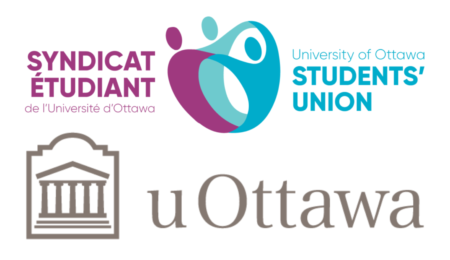Discussion focuses on student debt, balancing part-time work with school
On Oct. 31, the University of Ottawa New Democratic Party (UONDP) hosted a roundtable discussion with Andrea Horwath, leader of the Ontario NDP.
“We wanted to bring together a small sample of students and talk about the issues that are really affecting us in our education right now,” said UONDP co-president Victoria Occhipinti.
“Whether that’s tuition, or the student loans that we’re going to be graduating with, our future prospects, and frankly the future prospects of the province that we live in as a whole.”
Horwath was joined by Claude Bisson, an NDP candidate in the Ottawa-Vanier riding for the Nov. 17 byelection, who said that post-secondary education and tuition is an issue that is often raised by students and parents while he is canvassing.
The discussion began with Horwath sharing the work that the NDP is currently doing in response to students facing financial difficulties. According to Horwath,“The quality of work (in Ontario) is getting worse and not better. People are having to keep two or three jobs just to make ends meet.”
Horwath also acknowledged that students are facing a precarious job market upon graduation.
When it comes to education, Horwath said, “We have a number of concerns, we’ve been talking about them for a long time. Everything from the cost of tuition in this province—there still is no free tuition here in the province of Ontario.”
Horwath further noted that student expenses extend beyond tuition to include the cost of textbooks and housing accommodations.
“There’s this real sense of, what are we doing to ensure that your generation, and the generation after you have a good life here in Ontario? That’s something that we take very seriously,” said Horwath.
From there the discussion shifted over to the students, who shared the concerns and the major challenges they are facing. There was a general consensus that one of the biggest obstacles facing students is the act of balancing classes with part-time work to pay for post-secondary education, along with extracurricular activities.
Tony Bui, a member of the UONDP, also noted that balancing school with part-time employment and extracurricular activities can lead to extending one’s degree, which does come with drawbacks.
“Sometimes we have to do more than just the four years. We have to do a five-year degree or a six-year degree, but that means paying tuition on those additional years too.”
“What a high school education would have gotten you years ago, a bachelor degree may not even get you now,” said another student in attendance, highlighting that graduate education is a reality for many students who are already facing student debt.
Another student also raised the issues surrounding Ontario Student Assistance Plan (OSAP) loans, which take into consideration parents’ income as a major factor. However, as the student noted, not all parents finance their children’s education, and there are many costs associated with student life which OSAP does not factor in.
Bui also noted that finding employment with a degree in the social sciences is difficult and requires “education outside of the classroom,” which often means taking time away from school to participate in activities such as internships.
“The economy should be able to provide jobs for people who are so educated and well-rounded,” said Horwath, closing out the discussion.
“We’re trying to figure out what are the pathways that help create opportunity.”





